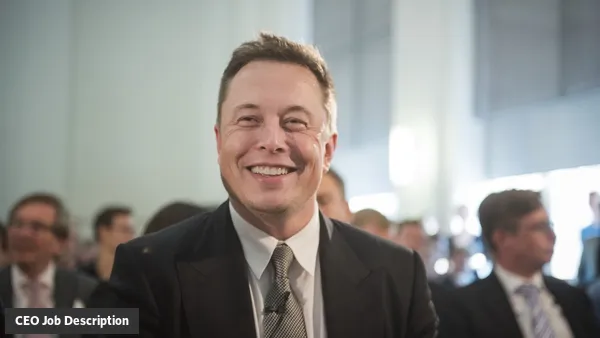CEO Job Description Template
Use this CEO job description template to advertise the open roles for free using Longlist.io. You can use this template as a starting point, modify the requirements according the needs of your organization or the client you are hiring for.

Job Brief
We are looking for an experienced Chief Executive Officer or CEO to supervise and control all strategic and business aspects of the company. You will be the first in command in the company and responsible for giving the proper strategic direction as well as creating a vision for success.
To thrive as a CEO you must be a prudent manager and an inspiring leader. The ideal candidate will have a business mindset and will be able to see the “big picture” in a variety of settings. They will take actions to enhance the company’s cash flow while keeping the human factor in perspective.
The goal is to drive the company’s development and guide it towards long-term success.
Responsibilities
- Develop high quality business strategies and plans ensuring their alignment with short-term and long-term objectives
- Lead and motivate subordinates to advance employee engagement develop a high performing managerial team
- Oversee all operations and business activities to ensure they produce the desired results and are consistent with the overall strategy and mission
- Make high-quality investing decisions to advance the business and increase profits
- Enforce adherence to legal guidelines and in-house policies to maintain the company’s legality and business ethics
- Review financial and non-financial reports to devise solutions or improvements
- Build trust relations with key partners and stakeholders and act as a point of contact for important shareholders
- Analyze problematic situations and occurrences and provide solutions to ensure company survival and growth
- Maintain a deep knowledge of the markets and industry of the company
Requirements
- Proven experience as CEO or in other managerial position
- Experience in developing profitable strategies and implementing vision
- Strong understanding of corporate finance and performance management principles
- Familiarity with diverse business functions such as marketing, PR, finance etc.
- In-depth knowledge of corporate governance and general management best practices
- An entrepreneurial mindset with outstanding organizational and leadership skills
- Analytical abilities and problem-solving skills
- Excellent communication and public speaking skills
- MSc/MA in business administration or relevant field
What does CEO do?
A CEO, or Chief Executive Officer, is the highest-ranking executive in a company and is responsible for making and implementing strategic decisions. The specifics of a CEO's day-to-day activities can vary depending on the size, industry, and complexity of the organization, but here are some common tasks:
-
Strategic planning: CEOs spend a significant amount of time analyzing the company's current state, setting long-term goals, and formulating strategies to achieve those objectives.
-
Decision-making: CEOs make important decisions related to business operations, finance, policies, and resource allocation. They rely on analysis, feedback from stakeholders, and their own expertise to make informed choices.
-
Leadership and management: CEOs provide guidance, direction, and leadership to the executive team and employees. They oversee departments, set performance metrics, and ensure the organization is functioning effectively and meeting objectives.
-
Stakeholder management: CEOs represent the company to various stakeholders, such as investors, board members, customers, suppliers, and the public. They build relationships, negotiate contracts, and seek partnerships that benefit the organization's interests.
-
Financial management: CEOs review financial reports, monitor budgets, and make decisions regarding investments, cost management, and revenue generation. They collaborate with financial teams to ensure the company's financial health and stability.
-
Employee communication: CEOs engage with employees to inspire and motivate them, foster a positive work culture, and ensure open communication channels throughout the organization. They may conduct town hall meetings, deliver speeches, or use other means to connect with employees.
-
External relations: CEOs often represent the company at industry events, conferences, and media interviews. They build and maintain relationships with industry peers, government officials, and other organizations that can influence the company's success.
-
Risk management: CEOs assess and mitigate risks associated with the company's operations, finances, reputation, and compliance. They work with legal teams and insurance providers to protect the organization's interests.
-
Innovation and growth: CEOs drive innovation and seek opportunities for growth through market analysis, research and development, new product launches, acquisitions, and expansion into new markets.
-
Continuous learning: CEOs stay updated on industry trends, market conditions, and best practices. They read industry publications, attend conferences, network with other professionals, and invest in their personal development.
It's worth noting that these responsibilities may overlap or change based on the specific needs and circumstances of the organization, and CEOs often work long hours and travel frequently.
